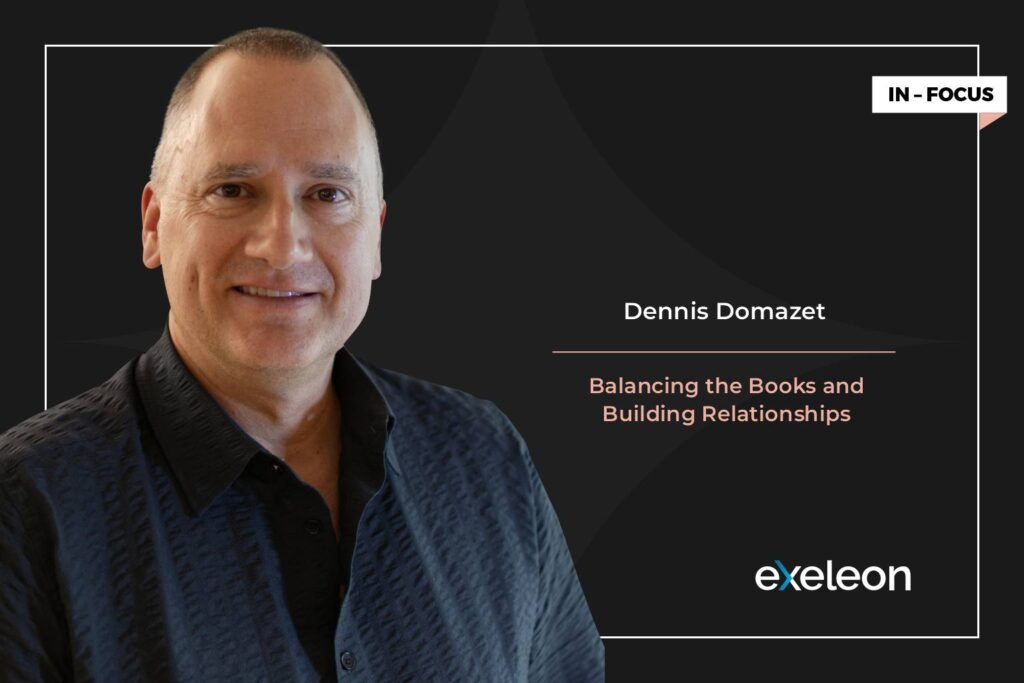Toronto CPA Dennis Domazet has patiently built a practice that’s all about helping the little guys—people running gyms, restaurants, salons, and the like. Before venturing out on his own, he was an executive officer at the world-renowned accounting firm Deloitte, where he held titles like Chief Strategy Officer and National Tax and Legal Corporate Development Office Leader. But his time in the corporate world wasn’t just about crunching numbers; it was about making big decisions and steering the firm through some tricky waters, always with an eye on doing things correctly and making sure the bottom line was healthy.
Dennis studied at the University of Toronto, where he earned degrees in Commerce and Economics. But what really makes him stand out is the personal touch he brings to everything he does. He’s a highly skilled accountant, but he’s also hyper-focused on establishing trust and observing professional ethics.
We managed to catch up with Dennis Domazet and ask him some questions about his life, his career, and how he manages to keep all those small businesses thriving.
Q: What made you decide to step away from the corporate world at Deloitte and start your own boutique practice?
Dennis Domazet: There was no big moment where I was struck by lightning and thought “this is it—now is time” or anything like that. I’d always wanted to venture out on my own and start a practice one day, and after many years with Deloitte, there was a point where I decided it was now or never. So, I suppose you’d call that a slow burn. But before I left, I made sure all my relationships with my co-workers and clients were rock solid and that I wasn’t leaving anyone out in the lurch.
Q: You’ve built a reputation for helping small business owners keep their financials straight. What’s the most common mistake you see them making, and how do you help them avoid it?
Dennis Domazet: Not keeping up with their bookkeeping regularly. That is by far the most common mistake I see. Some people let everything pile up throughout most of the year and then try to sort it all out right before the tax filing deadline, which can lead to a million headaches—missed deductions, errors, you name it! It’s like trying to cram for an exam the night before; it doesn’t work. I always tell my clients, “Keep it simple, but keep it consistent.” Set aside a little time each week to go over your numbers, track your expenses, and make sure everything’s in order. It doesn’t have to be perfect, but it does have to get done. Or, better yet, give that work to us, and focus on running your business.
Q: Running a business in Toronto isn’t for the faint of heart. What keeps you motivated, day in and day out, to help your clients succeed in such a competitive environment?
Dennis Domazet: I love this city. Its cast of characters from all kinds of backgrounds keeps me inspired and grounded. The diversity of ambitions and business ideas, and approaches to success, is enough to keep me motivated. I work with clients from all over Canada, but Toronto is my home. The skyline is amazing, the food is top notch. There’s nowhere else I’d rather live or run a business.
Q: Looking back, what’s one piece of advice you wish you could’ve given yourself when you were first starting out in this field?
Dennis Domazet: I’d tell myself to balance my work with my personal time better. When you’re young and hungry, it’s easy to get caught up working long hours to fast-track yourself up the corporate ladder. But maintaining a good work-life balance is really important for your long-term success and satisfaction, no matter what stage of your career. If you burn yourself out too early, you’ll pay the price. An office on the top floor doesn’t mean very much if your physical or mental health is suffering.
Q: You’re known for bringing a personal touch to your work. What does that mean for you, and how do you manage to maintain that level of care across all your many clients?
Dennis Domazet: Most of my clients own small businesses or run professional practices—doctors, lawyers, realtors, that sort of thing. These are not large corporations being run by faceless boards. These are real people with real families, each holding important roles in their communities. Some of them are not only my clients but my neighbors and friends. That alone is enough to guarantee that I give them my best effort in sorting out their taxes and finances. I want them to succeed, and I think there’s a sense that we’re all in this together.










